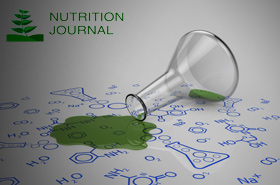Nutrition Journal Study Lacks Credibility
The online-only Nutrition Journal, one of 200 journals churned out by a British for-profit conglomerate, recently released a study on the consumption habits of pregnant women that baselessly and speciously concluded expecting mothers should avoid consuming whole categories of safe, reliable products, including seafood, canned food, and even tap water.
The report was authored by Kelly Huffman, who has a background in psychology, and includes contributions from a Ph. D. candidate and an undergraduate, none of whom have expertise in nutrition. The journals standards say they only publish peer-reviewed work, but when one peer reviewer with training in nutritional science expressed concerns about the studys unfounded conclusions, Nutrition Journal ignored them and published the report anyway.
The reviewer pointedly wrote that the psych-major and her coauthors make very general recommendations about what should and should not be consumed by pregnant women, which goes beyond the scope of the original data they present in the paper. Indeed, the reviewer writes that the main thrust of the report, essentially an opinion survey conducted on a small sample of women, could and should be presented as a separate paper, with only a very succinct, quantified summary of known, scientifically valid recommendations for pregnant women. But did the authors take this experts advice? Apparently not. In a comment on the revised draft, the peer reviewer stated flatly: The revisions do not adequately address the problems I raised in my original review.
The authors opining at length about prenatal nutrition, beyond the scope of their research, might not be so bad if they relied on the best science. But when it comes to fears over mercury in seafood and the net effect of seafood consumption on health the authors sources are shoddy.
They cite, for instance, Philippe Grandjean, whose 15-year-old study found elevated levels of mercury and neurological problems in children of the Faroe Islands. But the elevation was due in large part to the consumption of whale meat, which 1) is not eaten in the United States, 2) carries far higher concentrations of mercury than fish such as canned tuna, which are regularly eaten by Americans, and 3) doesn’t contain nearly as much mercury-mitigating selenium as fish like tuna. Take whale meat out of Grandjeans study and the data falls apart.
Similarly, the report cites the work of Jane Hightower, a physician who sees mercury poisoning as the culprit for just about every health problem conceivable. Hightower hasn’t published a single peer-reviewed article showing an association between seafood and mercury-related symptoms, and none of her work on the topic would hold up to rigorous scientific scrutiny. She also has ties to the ideologically driven Mercury Policy Project (MPP), made up of environmental extremists whose many factual shortcomings and distortions have been well documented.
Indeed, MPPs Edward Groth III, who also works for the fringy Gelfond Fund (bankrolled by a lone multi-millionaire with little more than a gut feeling that his sushi habit has impacted his health) makes his way into the citations as well. Not via a rigorous scientific study, mind you, but via a Consumer Reports buyers guide. This also happens to be Huffman and co.s most recent citation on mercury and seafood. You read that right. The authors latest source for clinical recommendations on prenatal nutrition comes from the folks who review vacuum cleaners.
Its no wonder a nutritionally literate peer-reviewer wanted the authors to dramatically scale back their very general recommendations and ensure that they were better rooted in good science.
But it is puzzling why Nutrition Journal saw fit to publish the specious study in spite of this reviewers unanswered concerns. Why did they let a trio of psychologists hold forth, freestyle, on a subject as important as prenatal nutrition?
The journal emphasizes its speed of publication, and even brags about publishing provisional versions of articles immediately upon acceptance, putting out finalized versions only later. So maybe we can hold out hope that Nutrition Journal is only provisionally giving credence to this slipshod study. Good science takes time.


